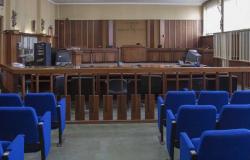Carry on with safe used cars. While waiting for the final verdict linked to the Recanati ballot between Emanuele Pepa and the outgoing Antonio Bravi, one thing emerges clearly from the municipal polls: out of 36 mayors elected in the province, 24 are confirmations. In short, in two out of three municipalities, the mayor who emerges from the polls is the same one who was in the saddle before citizens were asked to put a cross on the ballot paper. There are those who are preparing to begin their second mandate – like Noemi Tartabini in Potenza Picena -, those who have exploited the abolition of the ban on a third consecutive mandate in medium-sized municipalities – like Andrea Gentili in Monte San Giusto, Leonardo Catena in Montecassiano and Rolando Pecora in Montelupone -, and those who have reached their fifth experience as mayor (like Franco Capponi in Treia) or even their seventh like Giovanni Zavaglini in Gualdo and Pietro Cecoli in Monte Cavallo. No shocks either in Matelica and Montecosaro, where the two outgoing deputy mayors, Denis Cingolani and Lorella Cardinali, took the tricolor sash. Only two outgoing mayors ran for re-election and lost their seats: Cecilia Cesetti in Mogliano and, by the skin of their teeth, Francesco Paolo Giubileo in Urbisaglia, beaten respectively by Fabrizio Luchetti and Riccardo Natalini.
Continuity prevails even in defiance of national political orientations. Just think of the case of Treia, where the candidate supported by the Brothers of Italy – Piero Farabollini – lost despite the fact that in the European elections Prime Minister Giorgia Meloni’s party had even collected 45.8 percent of the votes (the centre-right was well above 60 %). Consensus which, evidently, did not then flow on the name expressed by FdI and its allies at the municipal elections. A similar plan was also followed in many other countries where the centre-right was largely in the majority at the European elections, but then the candidate for mayor from the centre-left area prevailed: Leonardo Catena in Montecassiano, Andrea Gentili in Monte San Giusto, Mauro Romoli in Pollenza, Mariano Calamita in Appignano and Matteo Pompei in Monte San Martino. In short, a new confirmation of the fact that in the Municipal elections people vote more for the person and less for political affinity.
Then there is the aspect of the multiplication of the mayor’s mandates. In Gualdo and Monte Cavallo, Giovanni Zavaglini and Pietro Cecoli wore the tricolor sash for the first time in 1990, when Giorgia Meloni was attending middle school. After 34 years they are still there and are preparing to be proclaimed mayor for the seventh time. At the end of their mandate, they will have reached 35 years as first citizens, practically a small monarchy. A situation that lends itself to conflicting assessments. On the one hand there is certainly the citizens’ appreciation for the work of their administrators. On the other hand, the alternation that in many cases has proven useful for the growth of communities is missing. The flourishing of these “highlander” mayors is a sign of a problem of generational turnover that affects mountain municipalities (and not only), where it is increasingly difficult to find someone who is willing to engage in public affairs.





